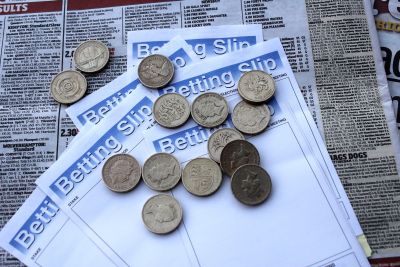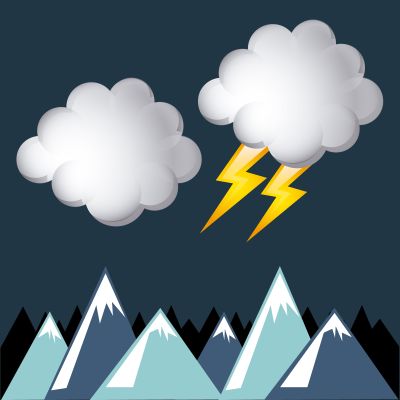

Many small communities across America have a bookie. We had one in my home town of Sutersville, PA., a coal mining town about 20 miles from Pittsburgh, PA.
Al was a small dapper man, always well dressed. He attended the local Catholic Church and was generous with his contributions.
He operated a store on Main Street. Sometimes he had milk or bread or juice to offer the public, but mostly it was just a storefront where he could sit at a table and smoke his endless chain of cigarettes while exchanging quips with his customers.
My mother was a $2 horse bettor. She also sometimes bet on the greyhounds at Wheeling Greyhound Park. She would give me the money and I would walk the half mile to Al's store and place the bet.
Once she asked me to buy a half gallon of milk and I went to Al's place to make the purchase.
Al lit up a cigarette. 'Kid, I hear you're going to college. Is that right?'
'Sure is, Al,' I said importantly. 'Duquesne University to study journalism.'
'That's great news, Kid,' he said, taking a puff. 'But if you wanna graduate from college, the first thing you should have is the facts. The fact is I'm a bookie, not a grocery owner. You want groceries, you go to Babe and Donna's place down the street. You wanna make a bet, you come to Al. Capish?' He smiled while the other men in the place roared with laughter.
Mom was a good handicapper and didn't do badly on the horses. When I moved to Hobbs, N.M. to become assistant city editor of the Hobbs Daily News-Sun, I discovered Hobbs had a bookie who took bets on the horses at Sunland Park and Los Alamitos.
Our receptionist was the attractive daughter of the police chief. She was on friendly terms with the bookie and would wave him into the editorial office when he came by to make payments and to collect what was owed him.

I would buy a racing form in the morning, do my handicapping and make my selections. Then when the bookie came by the office, I would hand him my choices. No money exchanged hands.
After the races were over, the bookie would come by carrying several brown paper bags. If you had won, your money was in the bag. If you lost, a statement on what you owed would be in it. You paid or you collected.
My publisher boss was Robert Summer, who owned a stable of race horses. He was a good publisher, a kind man, and I enjoyed working for him. One Friday he invited several members of the editorial staff to fly with him to Sunland Park in El Paso, TX. the following day. I agreed to go.
Our pilot was Mike, a local guy who enjoyed gambling. Six of us jammed into the single engine aircraft for the flight to El Paso. The weather had been building up all morning and by the time we made our take-off, it was cloudy and starting to rain.
The flight was rough and bumpy. Lightning flashed through the dark sky. I had brought along a six-pack of beer and shared it with the others, including the publisher.
There is a mountain between Hobbs and El Paso called Guadalupe Peak. Mike was flying by instruments since he could not see in front of him. As we neared Guadalupe Peak, I remembered that a small plane had crashed into the mountain two weeks earlier, killing all four people aboard.
We were out of beer and I was tensing up as the plane battled the winds and pouring rain. Suddenly there was a change in the tempo of the engine.
'What happened, Mike?,' I said.
Mike said, 'We just turned back.' The boss agreed and we flew back to Hobbs where we had a rendezvous with our bookie.
Author: Geno Lawrenzi Jr.
(Geno Lawrenzi Jr. is an international journalist, magazine author and ghostwriter and poker player who lives in Phoenx, AZ. He has published 2,000 articles in 50 magazines and 125 newspapers. If you want to share a gambling story or book idea with him, send an email to glawrenzi@gmail.com ).
Your feedback
Please enter your comment.
Your comment is added.




